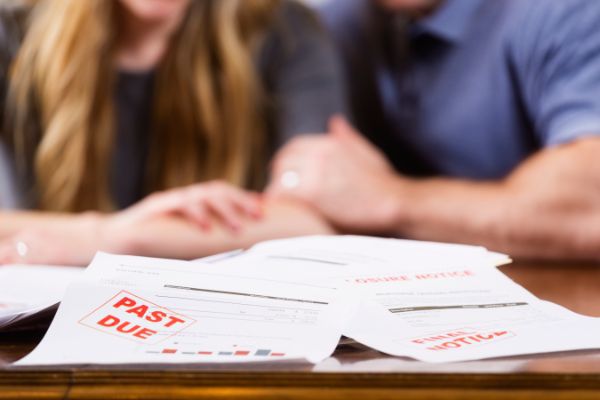Soon after a Chapter 13 case is filed, debtors assume the responsibility of making monthly Chapter 13 plan payments. This occurs approximately one month after the commencement of their bankruptcy case. At this time, the bankruptcy court has not yet confirmed the plan as proposed by the debtor. A plan is filed as a preliminary proposal to the Chapter 13 trustee, yet, debtors must start making payments with the assumption that it will be confirmed. Creditors and the trustee may object to the plan subject to a deadline.
Between the time that the plan is filed and confirmed, debtors may become delinquent in making their plan payments. Any delinquency of a few days or a week is usually not going to cause any problems, especially if the delinquent payment is made before the last day of the month.
However, once the delinquency carries over from one month to the next, or extends beyond one month, the Chapter 13 trustee may file a motion to dismiss a debtor’s case for failing to make plan payments. A creditor may also request the dismissal of the case. This often occurs if the creditor is the recipient of a monthly distribution known as an adequate protection payment.
A Chapter 13 plan may require an adequate protection payment to creditors with secured interests in personal property, such as an automobile. These payments protect creditors based on the fact that the collateral for their debts is depreciating over time. Other than adequate protection payments, which are taken out of plan payments each month, creditors receive no other distributions under the plan until it is confirmed by the bankruptcy court. Missed plan payments mean missed adequate protection payments.
Even if no creditor objects in this circumstance, eventually, the Chapter 13 trustee will file a motion to dismiss. The following summarizes the possible consequences:
*Court Will Not Confirm Your Chapter 13 Plan
Creditors are given a specific amount of time to file proofs of claim and object to a chapter 13 plan. Once this period ends, the plan may be confirmed. A bankruptcy judge then enters an order that confirms a final consensus of the plan in its present form. This is a threshold moment in a Chapter 13 bankruptcy case as creditors may no longer object to the treatment of their claim and are bound by the Chapter 13 plan as confirmed.
The period for which creditors may file proofs of claim and object to a plan runs 90 days after the first date set for the meeting of creditors. Debtors must, therefore, make three months of payments before the earliest date that a plan may be confirmed. It is important to note that Chapter 13 cases with unconfirmed plans over an extended time period are eventually dismissed.
*Creditors Will Obtain Relief from the Automatic Stay
The automatic stay becomes effective when a bankruptcy case is filed. The stay bars creditors from collection activities, although there are some exceptions. Creditors may neither initiate nor continue collection efforts without moving or requesting the bankruptcy court to remove or “lift” the automatic stay. Debtors lose the stay’s valuable protection from the collection efforts of creditors when a case is dismissed.
*Dismissal of the Bankruptcy Case
Motions to dismiss require a response from the debtor within 20 days. If the debtor fails to respond with a solution to the delinquency or request a motion for moratorium of plan payments, the court will dismiss the case. Even if a Chapter 13 case has been confirmed, any default on Chapter 13 payments still risks the dismissal of the case. Any Chapter 13 bankruptcy debtor whose case is terminated prior to the completion of payments under the plan will not receive a discharge.
The Morrison Law Group can help if you just need to talk about your Chapter 7 or Chapter 13 bankruptcy options. Call 801.456.9933 today to schedule a FREE consultation. We have locations in Ogden, Logan, Sandy, and St. George to serve the residents of the counties of Weber, Cache, Salt Lake, Utah, Morgan, Davis, Washington, and surrounding areas.



